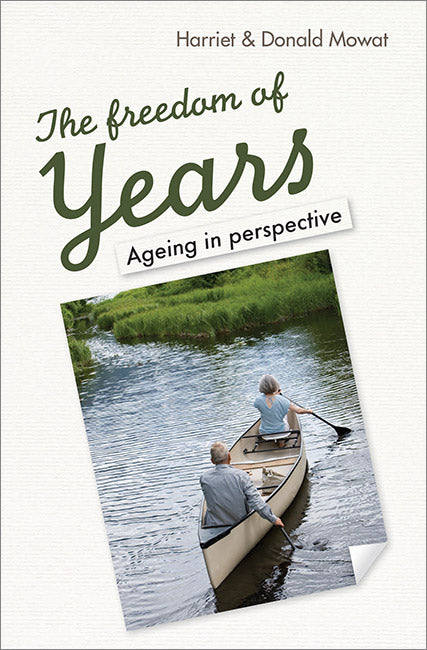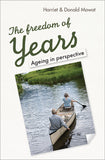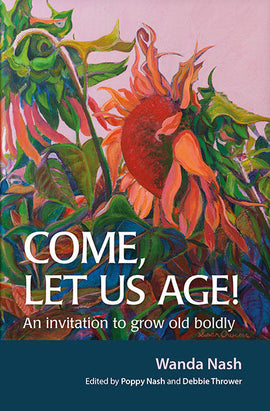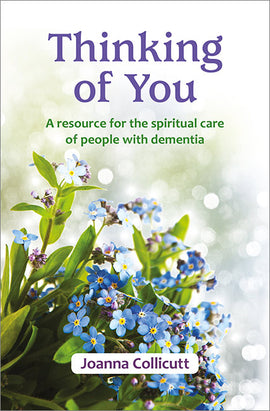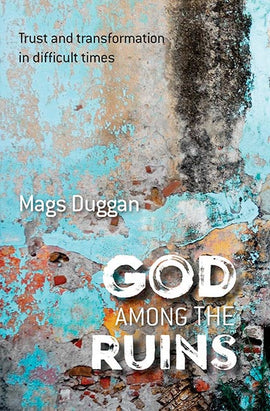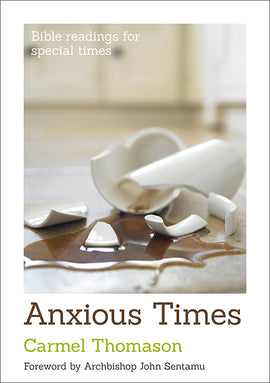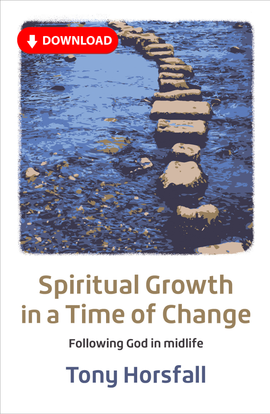The Freedom of Years: Ageing in perspective
This positive, affirming book explores and reviews the meaning and purpose of our lives. As Christians, ageing gives us the opportunity to deepen and even transform our spiritual lives. The Freedom of Years helps those who want to undertake the journey by examining the ageing task, the inevitable changes and the possibilities of joy along the way. Read this book, see the potential and seek to age in the light of your Christian faith.
| Title | The Freedom of Years: Ageing in perspective |
| Author | Harriet and Donald Mowat |
| ISBN | |
| Description | This positive, affirming book explores and reviews the meaning and purpose of our lives. As Christians, ageing gives us the opportunity to deepen and even transform our spiritual lives. The Freedom of Years helps those who want to undertake the journey by examining the ageing task, the inevitable changes and the possibilities of joy along the way. Read this book, see the potential and seek to age in the light of your Christian faith. |
| Details |
|
This positive, affirming book explores and reviews the meaning and purpose of our lives. As Christians, ageing gives us the opportunity to deepen and even transform our spiritual lives. The Freedom of Years helps those who want to undertake the journey by examining the ageing task, the inevitable changes and the possibilities of joy along the way. Read this book, see the potential and seek to age in the light of your Christian faith.
- We are all ageing
- What is ageing for?
- Successful ageing: the story so far
- The spiritual journey: making meaning
- Attitudes to ageing: implications for spiritual care and support
- The context in which we age
- The discontents of ageing
- 'Clouds of glory': the second half of life
- Retirement: doing things differently
- Practising ageing: choosing, believing, trusting
This book is a triumph. It explores life and the ageing process in an honest and straightforward way. It is a book for 'everyman' - carer or cared-for, professional or layperson, of faith or secular. The Mowats make sense of some important concepts and ideas from various disciplines and do so in a very accessible style. Readers seeking more in-depth knowledge can make use of their extensive bibliography. This book should be essential reading for anyone curious about their own life process and its meaning. Readers will be enriched and left a little bit less afraid of their own ageing and mortality.
Dr Janice Whittick, Retired Clinical Psychologist
The gift of this book is the simple understanding that we are all ageing. It is a shared journey, whether we are younger or older, and we must therefore face the issues raised for our communities together. Those involved in spiritual care, with families or care staff, exploring questions of meaning and purpose, will find it a real resource in looking at the question of what is valued in the kind of communities we want to build.
Lynda Wright, Health Care Chaplain, NHS NES Scotland
I really like this book: it is informative and deals with the spiritual in a way that is not intrusive or evangelistic! I particularly warm to the authors' use of psychological frameworks: all that resonates very positively with me. It is a wise book, relevant to older people in 2018.
The Revd Dr Anne Townsend
This engaging book for adults of all ages will make a difference to how readers approach their own ageing process and those for whom they care. There will be value in returning often to the dense thoroughness of ten chapters which hold a wealth of information and wisdom. As the fictional stories of Angus and Josephine unfold, they draw the reader into spiritual and practical challenges 'to live with each other in a state of mutual recognition of our common humanity'. This book is a gem of opportunity to face the ageing process with hope.
Elizabeth Baxter, Holyrood Retreat Centre
Harriet Mowat has spent her working career researching the social impact of ageing and was influential in the development of Scottish health care chaplaincy. She has been a key adviser to BRF in developing its programme The Gift of Years, which resources the spiritual journey of older people. Donald Mowat is a retired psychiatrist, specialising in old age. He is an honorary staff member in the School of Divinity at the University of Aberdeen.
The Reader, Winter 2018. Review by Liz Pacey
As a society we are living longer, and this leads to many questions and concerns about our ability to age well, not least in the area of spirituality. This book subtitled 'Ageing in perspective', does a very good job of considering how all aspects of life come together, with thought-provoking references from the fields of psychology and literature. It examines the day-to-day lives, needs and anxieties of the elderly in our churches, including those who may now be noticeable by their absence. Two fictitious but very well researched case studies run through the book, enhancing the readability. The overall message is positive: old age in not a waiting room but a time when spirituality and awareness of God can grow. There is much material here to stimulate our thought processes, enhance our own view of ageing, and help us to understand and hopefully enrich the lives of those around us.
Review by Liz Pacey
_______________________________________________________________________
The Baptist Times, August 2018. Review by John Rackley
The greatest moral question facing us in the 21st century is: what is ageing for? Harriet and Donald Mowat agree with this statement of James Woodward. They write from a lifetime in medical life and social science focussing on ageing.
They write: we are trying to see beyond the idea that ageing is just about decline and painful joints. Nor is it about the time of life when those whom we love get ill and sometimes die. Rather whatever else it is about, ageing must be about changing and deepening our understanding of our place, in and outside time, which as we all know can be a struggle.
So all of life is an ageing process. It is also a spiritual journey; spiritual in the sense of the need to seek purpose and meaning. So their book includes chapters on human development theory, attitudes toward and the discontents of ageing, midlife and beyond, retirement and the disciplines and virtues that accompany the practice of spiritual ageing.
As we read about research, ideas and theory we also journey with Angus and Josephine; two imaginary characters that live their own ageing for us. They sound a ring of truth.
Whether or not the purpose of ageing is the greatest moral question of the 21st century, it is certainly a neglected one both in our society and sadly in churches; which have an enervating ambiguity toward 'people of a certain age'.
BRF is to be commended in publishing a number of books on ageing in later years from such authors as David Winter and Wanda Nash, as well as setting up a programme of resources for the spiritual journey of older people including the ministry of Anna Chaplains. This book bears the name of this programme and provides background reading for this study.
A minister or pastoral worker who is wishing to reflect on the witness of their church to those no longer young would be well served by this book. Its theology is implicit but it longs for people to know their God in all places and at all times.
John Rackley is a Baptist minister living in Leicestershire
_______________________________________________________________________
Review by Maggie Greaves, leader of Journeying into Age, Milton Keynes
I found myself a bit resistant to it before I even started it ... partly because I didn't like the canoe photo on the front ...
However, when I began it, I liked it more. The theories of Melanie Klein, Jung and the attachment work of Bowlby and later Winnicott, and then the life stage theories of Erikson were all familiar to me from my own working background and they were clearly - if briefly - sketched at the beginning of the book. ...They do refer back to these early developmental theories from time to time in the following chapters and I was impressed with that.
I wasn't sure, either, about the case histories they chose when they were first described, but they won me over and they used them so creatively to illustrate various dilemmas that I decided in the end that they were a really helpful narrative device.
My favourite chapter was 7, the Discontents of Ageing, the whole of which I thought was excellent. It challenges the mental/physical separation of health issues - which I found very helpful, but it raised questions of the social construction of disability in old age and was prepared to look at sociological and political questions which many writing on ageing don't tackle very helpfully. I particularly liked page 119 and the description of 'cumulative trivia' and 'mild cognitive impairment' which left me thinking in quite new ways about some of the assumptions I have made about friends who have had difficulties lately. When you think there's nothing new left to say about getting old, it's a treat to read something so fresh.
My only other comment would be to say that I'm not sure they quite had a handle on their proposed readership. From time to time it was as if they 'remembered' that they were supposed to be addressing caring staff and family carers with their advice, as well as speaking to an already elderly readership? It slid about a bit in that respect for me, perhaps a slightly tighter edit would have picked that up.
I'm really grateful to have read it and I shall certainly pass it around our Journeying group as I'm sure others will find it helpful too.
Review by Maggie Greaves, leader of Journeying into Age, Milton Keynes
_______________________________________________________________________

